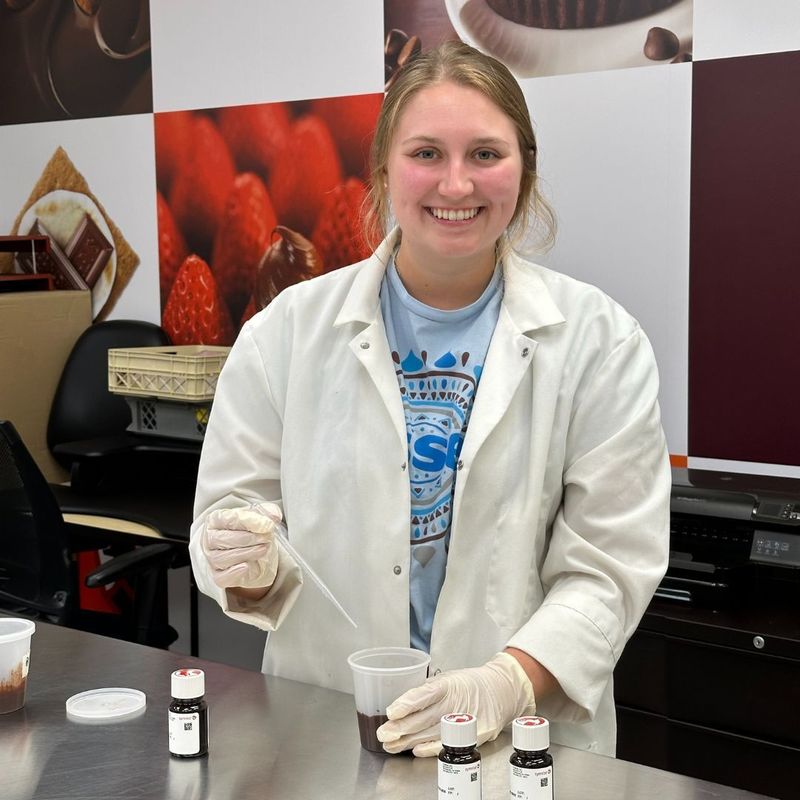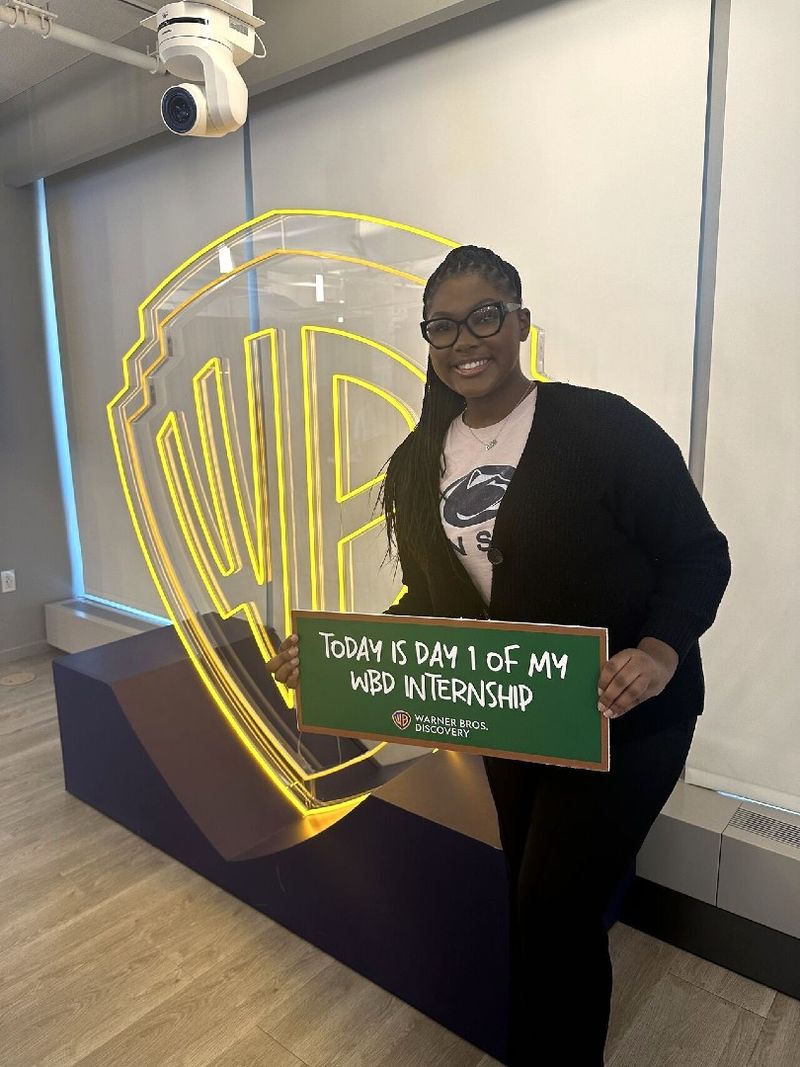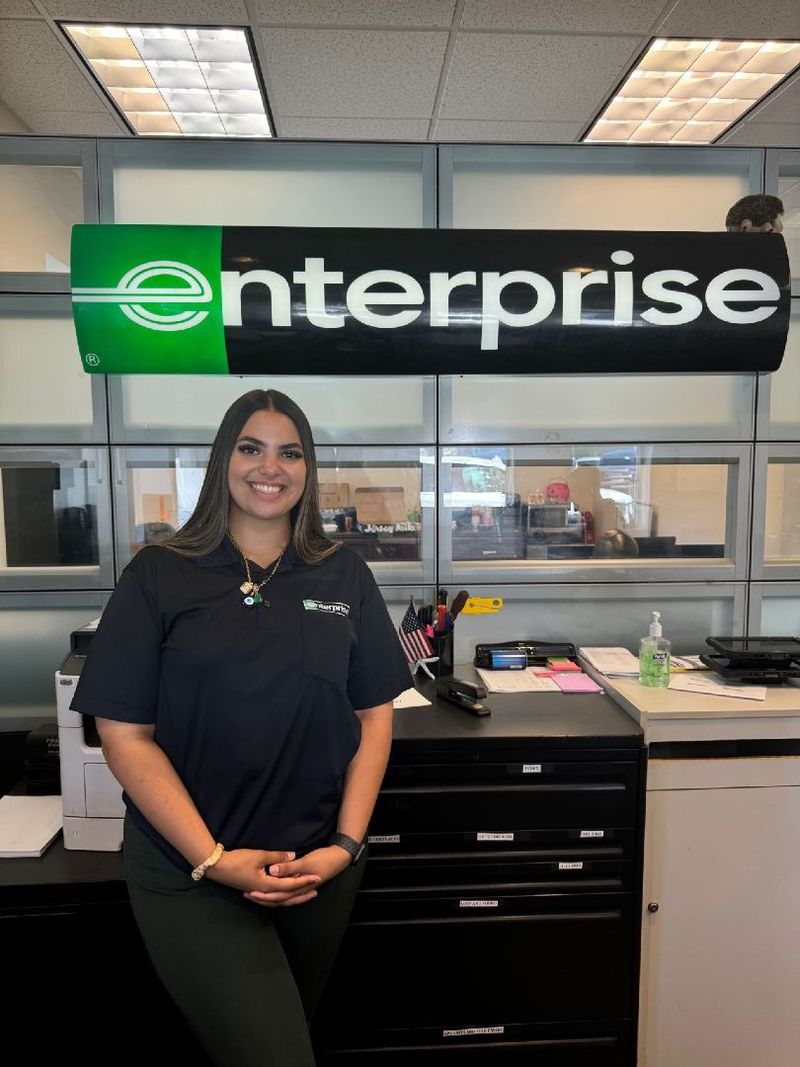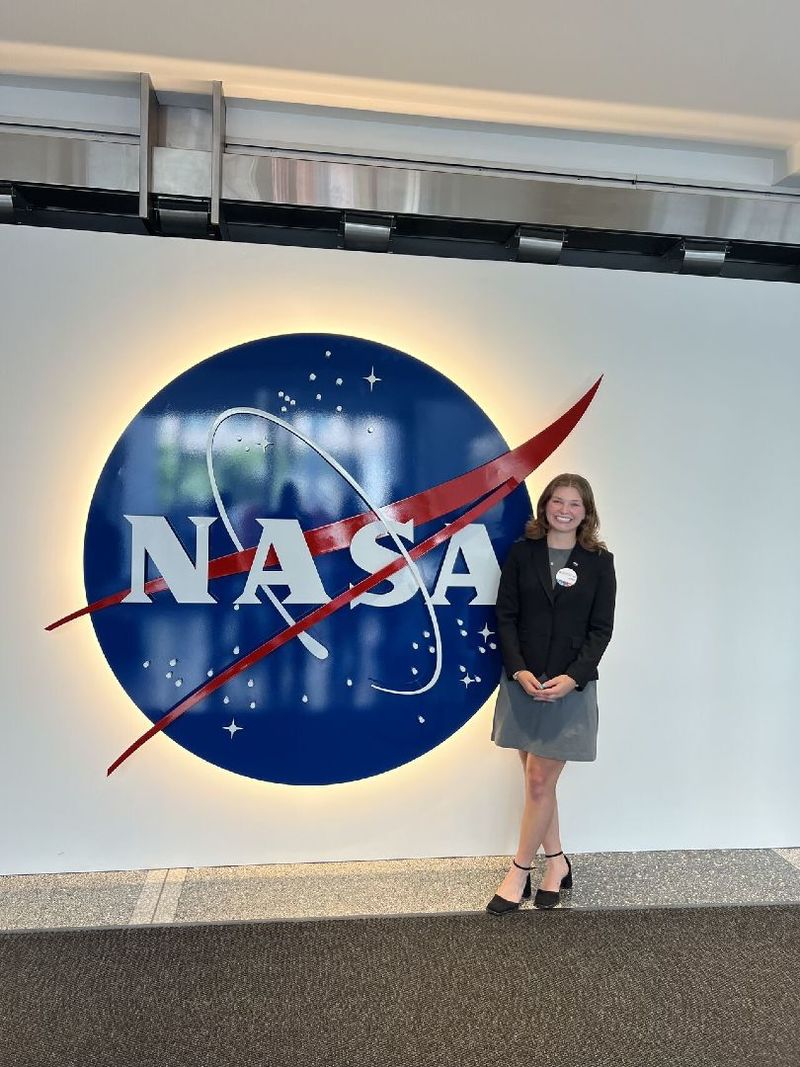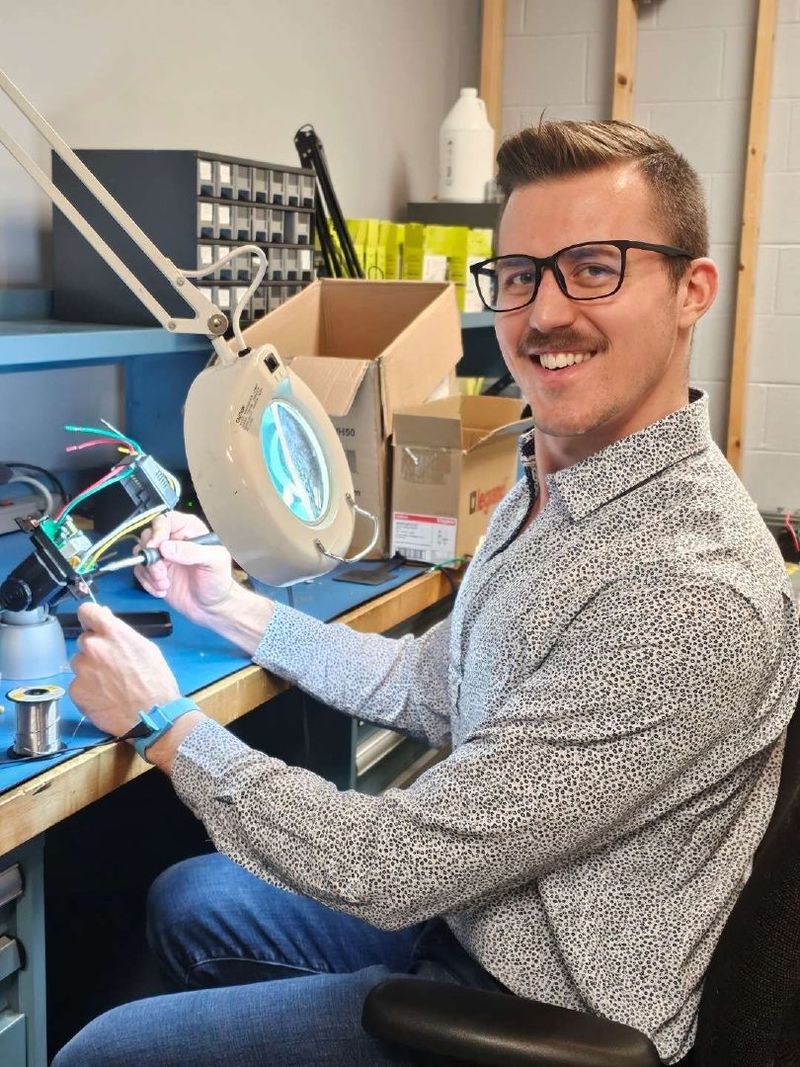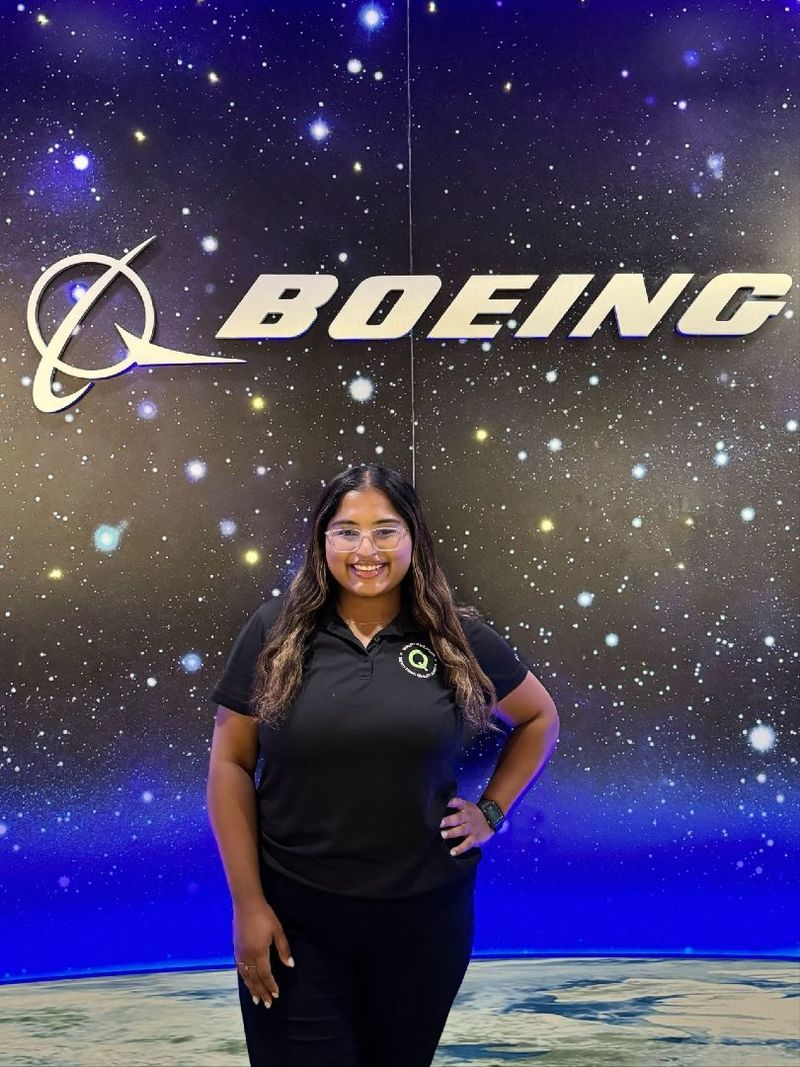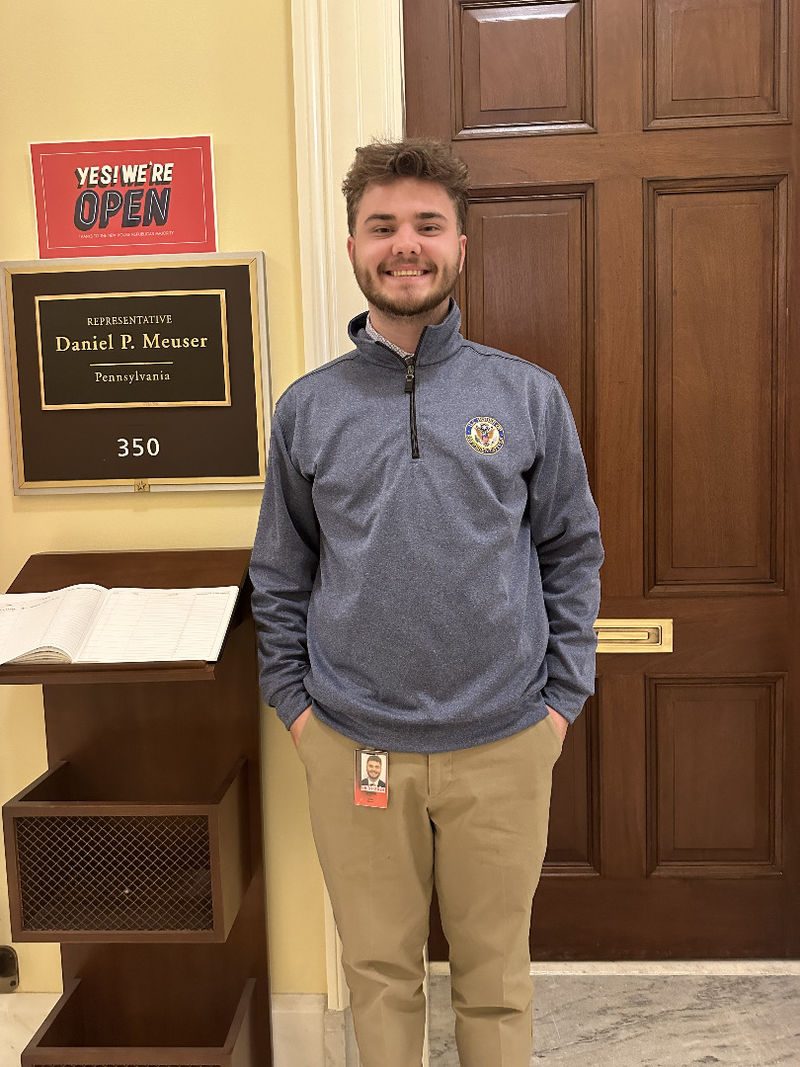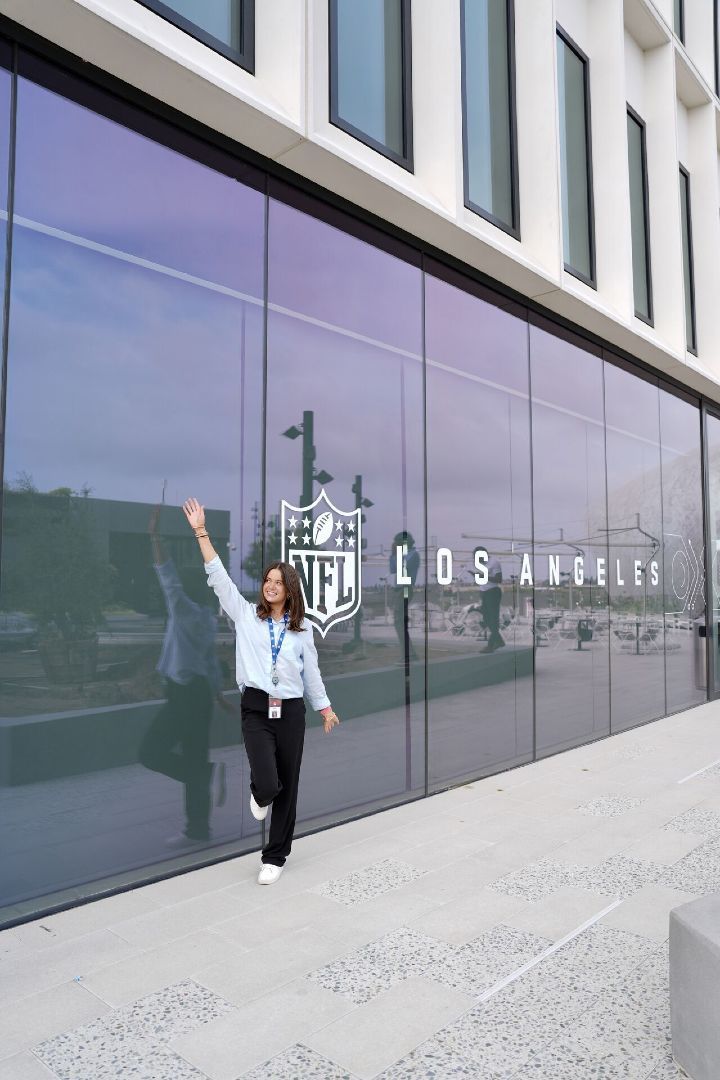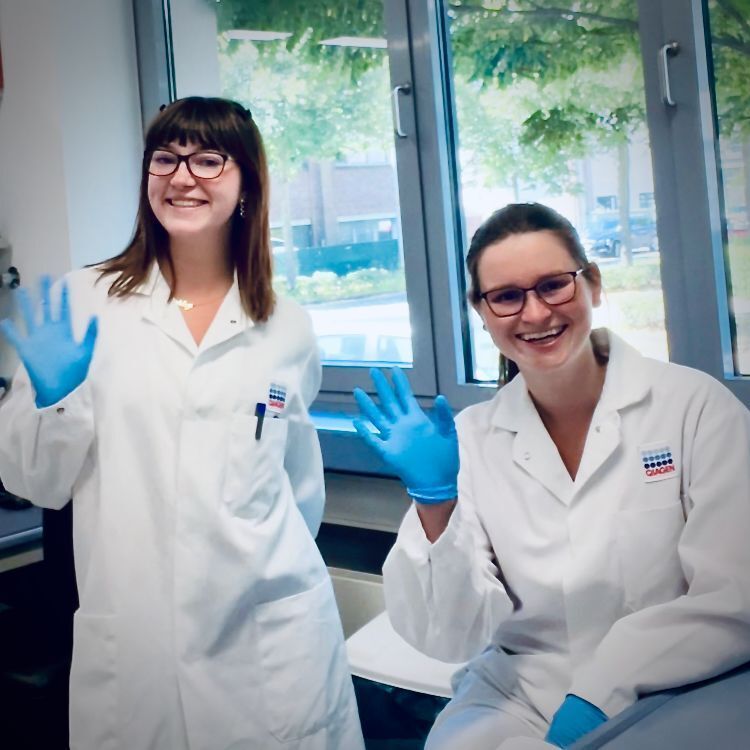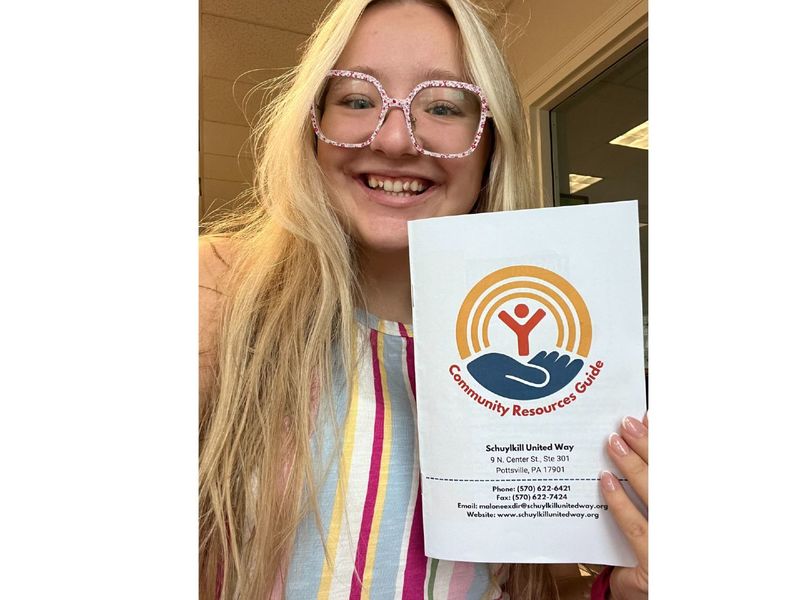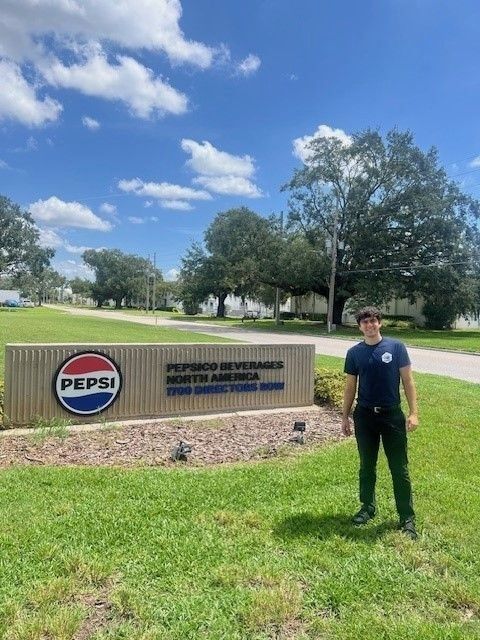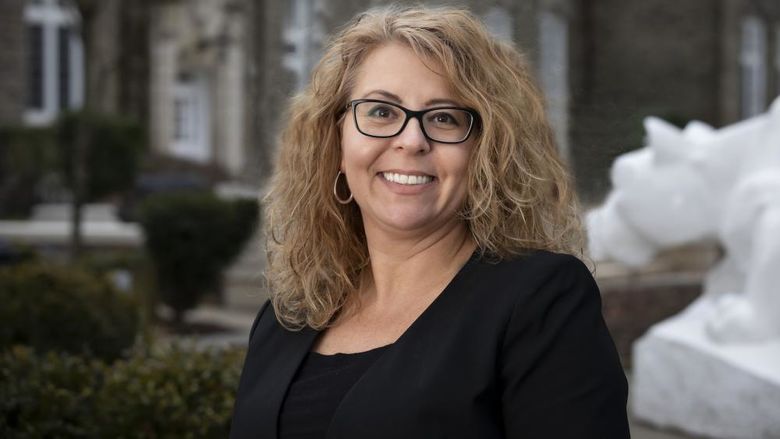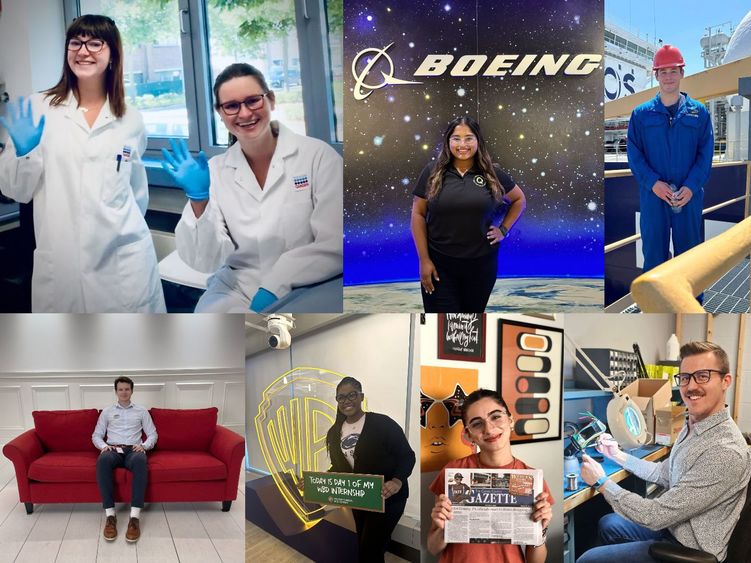
Penn State students completed a variety of internship experiences in summer 2024. A few of them include (clockwise from top left): Conducting microbiome research at QIAGEN headquarters in Hilden, Germany; working as a manufacturing intern on the H-47 Chinook program at Boeing; working with Sunoco LP in the race fuels department; updating firmware and reworking software at Legrand; writing for the Centre County Gazette; broadcasting at CNN, a business unit of Warner Bros. Discovery, Inc.; and learning restaurant performance insights at Chick-Fil-A. The photo gallery below provides more details on these and many other recent internship experiences of Penn State students.
UNIVERSITY PARK, Pa. — Baking in the test kitchens at The Hershey Company. Studying the effects of space weather on satellite communication with NASA. Working on Capitol Hill in Washington, D.C., as a congressional intern. Planning events at The Arboretum at Penn State.
These activities are just a few of the many experiential learning and professional development opportunities that Penn State students gained through internships this summer. The following photo gallery showcases these and other first-hand accounts of student internships across a range of industries and domains. The pictures highlight a few of the numerous internship opportunities that Penn State students from various colleges and campuses can pursue.
“A career choice is one of life’s most important decisions,” said Bob Orndorff, senior director of Career Services. “There is no deeper way to explore and ensure one’s career choice than participating in an internship.”
Completing an internship can do more than help a student learn more about their chosen career path — it can also lead to full-time employment. According to the National Association of Colleges and Employers (NACE), companies reported extending full-time job offers for after graduation to two-thirds of their interns in 2022-23. In that same year, more than half (53%) of eligible interns accepted offers for continued full-time employment.
“The majority of college students who choose a particular internship are essentially choosing their first full-time job,” Orndorff said.
Orndorff offered some tips, advice and words of wisdom for Penn State students who are interested in or actively pursuing internship opportunities:
Start planning early
College students most often complete internships during their junior or senior year after they’ve completed a majority of their academic program’s relevant courses, according to Orndorff.
“It’s becoming more common, however, for students to pursue and ultimately complete more than one internship during their college career,” he said. “Therefore, we recommend that students meet with a career counselor as early as possible — in their first year or second year at the latest — to develop a career success and internship plan.”
Develop critical skills
Students can further develop and hone important skills during their internship, specifically in NACE’s eight Career Readiness Competencies that are valued most by employers of college students: communication, teamwork, leadership, equity and inclusion, critical thinking, professionalism, technology, and self and career development.
“An internship is a prime venue for developing these all-important competencies,” Orndorff said.
Employers benefit from internships, too
An organization can fully assess entry-level candidates through observing interns in action, and many employers have expanded their internship programs to serve as a pipeline for entry-level employment, Orndorff said.
If an employer wants to see that they’re hiring someone who is professional, team-oriented and hard-working and who gets along with colleagues and customers, they need to see them in action over a period of a few months rather than a period of a few hours in an interview,” he said. “By observing interns, who may later become potential full-time employees, employers are able to see first-hand who comes in early and stays late, gets along well with everybody, produces high-quality work and manages adversity well.”
Maximize your internship experience
While interns should first and foremost focus on their position's main responsibilities, Orndorff said there are ways they can further impress their supervisor to increase the probability of receiving a full-time offer once they are settled into their role. He recommends that interns meet with employees in the company to gain exposure to other divisions, departments and roles, gaining exposure to various career options. This can also help interns build and strengthen their professional network. Orndorff also suggests that students can show initiative by volunteering to help complete projects or tasks that have been “put on the back burner.”
“This is the kind of initiative that employers value most in college interns,” he said.
Network, network, network
“What makes Penn State unique is its vast and diverse alumni network,” Orndorff said. “Networking continues to be the most effective means to acquiring an internship, and there is no stronger network than alumni. With one of the largest alumni networks in the country, Penn State students can connect with alumni within both their career field and geographical location of interest.”
Take advantage of Penn State’s resources
The University offers many programs, services and resources to help students pursue and obtain internships. Orndorff strongly recommends that students:
-
Schedule a coaching session with a career counselor through Nittany Lion Careers.
-
Sign up for LionLink, a database of Penn State alumni who have registered to serve as career mentors or coaches for students and fellow alumni.
-
Explore their college, department and/or campus career services office and resources. Many have formal internship programs and additional resources, including lists of internship sites that have hosted their students in the past.
-
Attend career fairs, held University-wide each semester and organized independently by colleges, campuses, departments or student organizations throughout the year.
-
Participate in career programs, workshops and events hosted by Career Services or individual colleges, campuses or departments.
